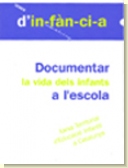1. What is a Pop-Up Adventure Playground?
A Pop-Up Adventure Playground is a space created for and by children to play in as they please with a variety of recycled, found or donated materials. They are public and free for everyone, and staffed by supportive adults known as Playworkers. They draw heavily upon the work of the UK Playwork and Adventure Playground movement and offer chances for whole communities to come together in support of children's play.
2. What's the story behind these playgrounds?
When Sharon and I met a year ago, I'd been working on fixed Adventure Playground sites and Play Ranger projects in the UK for some years, and Sharon was with the New York Coalition for Play. We were interested in finding ways to bring some of the UK-based ideas and practice over here, and doing it in grassroots, community-based and sustainable ways. Since then we've attracted some really gifted colleagues and created a number of Pop-Up Adventure Playgrounds in New York and Boston. We have an on-going Pop-Up on Governor's Island all summer long, and we're working on our resources and networking opportunities for independent organizers across the world.
3. What are you trying to promote and share by doing these events?
3. What are you trying to promote and share by doing these events?
We're trying to join up three different aspects - play, community and environmental sustainability. We believe that children need opportunities to play in their own way, for their own reasons, every single day - and that ordinary people, ordinary neighborhoods, can come together to create those opportunities (with a little help getting started). We all have the power to help make our neighborhoods into better places for living, and we already have all the 'stuff' we need to do that.
4. Do you think that people play less and less every day?
4. Do you think that people play less and less every day?
I don't know... I think that many people are separated from their inbuilt human need to play. It's easy to just fall over in front of the tv - I do it myself! But that's not play, and it doesn't nourish you in the way that real play does. Play can be defined as something that you do for the sheer joy and satisfaction of doing it, and we all need that in our lives. I believe that a lot of the current interest in crafts, home decorating, cooking, and so on are all expressions of adults' search for their own ways to play.
Children's opportunities for play are under serious threat. Longer school hours and greater pressures there mean that many children spent their out-of-school time in tutoring or extracurricular activities which they don't have control over - and it's that freedom of choice and direction that makes play so empowering for them. They often can't play outside the way that they used to, because of traffic and parental fears of strangers. It's vital that we see children's need for play as important, and that we work now to improve their opportunities for play every day.
5. What is the "type" of play that you enjoy the most?
Children's opportunities for play are under serious threat. Longer school hours and greater pressures there mean that many children spent their out-of-school time in tutoring or extracurricular activities which they don't have control over - and it's that freedom of choice and direction that makes play so empowering for them. They often can't play outside the way that they used to, because of traffic and parental fears of strangers. It's vital that we see children's need for play as important, and that we work now to improve their opportunities for play every day.
5. What is the "type" of play that you enjoy the most?
In my own life, I like to write, make collages, and dance. I haven't been making enough time for those lately, because I spend a lot of time working to help others play more! It's an irony that I'm trying to address.
In terms of children's play, what I love best is how it's always surprising. You could bring the same materials to the same site every day for a year, and it would be different every time. Children are the experts at play, and I'm reminded of this every time I do playwork.
6. How did you hear from our experience? (or was it me who contact you? haha I don't remember)
In terms of children's play, what I love best is how it's always surprising. You could bring the same materials to the same site every day for a year, and it would be different every time. Children are the experts at play, and I'm reminded of this every time I do playwork.
6. How did you hear from our experience? (or was it me who contact you? haha I don't remember)
I think we found you through Google! You linked back to our site when you did your first event, and we're interested in seeing how and where these ideas spread. It was very exciting to hear about what you were doing! You're awesome!
7. What advice can you give us for our next pop-up adventure playground?
I think you're doing great! It looked so beautiful from the pictures - selfishly, I'd love the chance to visit. The best way to learn more about creating Pop-Up Adventure Playgrounds is to keep doing them, and talk about how it went with the other people who were there. Write down reflections about it as soon as you can after it's over, and refer to those as you keep going so you can see your development, and that of the site.7. What advice can you give us for our next pop-up adventure playground?


















































